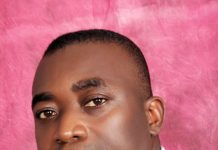To their deaf pillows will discharge their secrets
Still it cried “Sleep no more!” to all the house:
“Glamis hath murder’d sleep, and there Cawdor
Shall sleep no more, Macbeth shall sleep no more.”
– William Shakespeare
Give to out tables meat, sleep to our nights
John Dramani Mahama has disrupted the peace and tranquility that Ghanaians rely on for the country’s prosperity by removing the Chief Justice of the Supreme Court of Ghana, Justice Torkernoo. Ghanaian politics will never be the same. The politically motivated removal of Justice Torkernoo has not only weakened the judicial system and the rule of law but also turned the justice system into a kangaroo court in the hands of politicians, leaving most Ghanaians unable to sleep peacefully.
John Mahama shows no remorse. His reasons for the removal lack grounding in reality or consistent principles. He merely shifts from one fabricated reason to another, hoping that Ghanaians will forget that he and his party, the National Democratic Congress (NDC), come from a background where controlling the judiciary by any means necessary, including killing judges, is considered acceptable.
It is crucial to understand the broader context, as this issue extends beyond just legal matters. It touches on fundamental questions about freedom, institutions, and democracy. Early in President Mahama’s second term, his administration quickly increased the number of Supreme Court justices to twenty-one — ensuring that independent judges are outnumbered and effectively marginalized. This strategy allows him to give the appearance of a functioning Supreme Court while keeping it firmly under his control.
Justice Torkornoo was notably removed from office on Monday, September 1, 2025, under Article 146(9) of the 1992 Constitution. A statement from the presidency explained that the decision was based on the recommendation of a committee established under Article 146(6) to investigate a petition filed by citizen Mr. Daniel Ofori. The removal took immediate effect.
As expected, the removal triggered widespread outrage within Ghana’s legal and civil society circles. The Ghana Bar Association (GBA) and the Centre for Democratic Governance (CDM) all condemned the move as unconstitutional and a violation of judicial independence, citing a failure to publish regulations to justify the exercise of presidential discretion, as required by Article 296.
The question of whether the president can fire a Chief Justice has been debated for many years. The removal risks entrenching authoritarian tendencies in Ghana. It is not a criminal trial but a partisan political procedure conducted in secret to determine if a Chief Justice has committed an act that makes them ‘unfit’ for office. The grounds for removal are “Stated Misbehavior, Incompetence, or Infirmity.” Most legal experts agree that these charges are subjective and could be interpreted anyhow to achieve a desired objective.
Meanwhile, Article 127(2) is very clear that the President, Parliament, or any person acting under the authority of any person does not have the right to interfere with Judges when Judges are exercising Judicial Power, for which reasons all organs and agencies of the State are obligated to provide all the assistance needed to protect their independence, dignity, and effectiveness of the Supreme Court.
It is interesting to note that immediately after the sacking of the Chief Justice, Mahama lifted the ban on the sale of public lands to private entities. Now we understand that the removal of the Chief Justice has nothing to do with the integrity of the court or public life but is instead about politics, state capture, and the inordinate desire to take control of state assets and prevent those who might challenge this power in the future.
John Mahama is a narcissistic dictator prone to corruption. He returned to power after a intense propaganda campaign and widespread intimidation and violence by the NDC. Independent judges are a nightmare for would-be corrupt dictators and political parties like the NDC. History shows that corruption often flourishes when the judiciary is compromised. Without a fair judiciary, those involved in corruption can operate with impunity, knowing they will not be held accountable.
We still remember how his brother, Ibrahim, allegedly manipulated government institutions during his first term as president. Through a network of corrupt officials and business executives, Ibrahim:
- Influenced government contracts worth billions.
- Took control of state-owned enterprises like the Merchant Bank, and gold and manganese mines.
- Facilitated ministerial appointments to benefit his business interests.
Sadly, the threat of dictatorship, growing corruption, and ongoing human rights abuses endangers all citizens of this country, especially the poor. It is the duty of citizens to stay alert in defending justice and demanding a fair, independent judiciary. Only through a strong commitment to the rule of law can Ghanaians hope to avoid falling into tyranny and suffering.
Ghanaians may be unsure whether John Mahama feels guilty or can sleep peacefully at night. What we do know is that his desire to control all state institutions, including the judiciary, would cause him extreme anxiety, making it impossible for him to find sleep or peace.
By Kwadwo Afari








